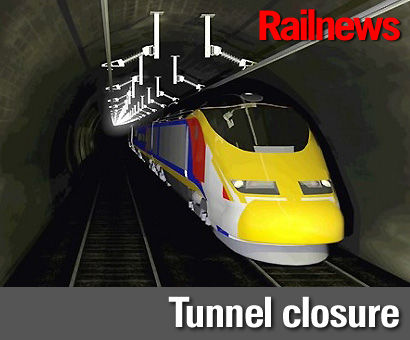TRAINS between South Wales and London are being diverted via Gloucester from today, so that the Severn Tunnel can be electrified over the next six weeks.
The Tunnel, opened in 1886, will now be closed until 21 October while engineers install a type of overhead conductor rail rather than conventional oveehead equipment because of the damp conditions under the river.
Network Rail has decided to carry out the work in a single blockade rather than with a series of piece-meal closures, which it said could have lasted for five years.
A significant amount of preparation work has already been completed, which has taken 3,500 hours. Forty tonnes of soot has been removed, brick work inspected, 7km of redundant cable removed, over 12,000 holes drilled using a custom-made drilling rig and over six thousand cable cleats installed.
The closure means many more passenger and freight trains running through the Cotswolds and the Forest of Dean via Stroud, Gloucester and Lydney, and the extra rail traffic means that a number of level crossings will be much busier, with an extra 44 passenger trains and 27 freight using the diversion from Swindon on an average day. The line between Swindon and Kemble was redoubled a couple of years ago partly because of this diversion.
Network Rail has written to people who live near the route, pointing out that level crossings will be activated more frequently. Its letter explains: "Where there are barriers, please allow extra time to travel as the barriers will be down a lot more often than usual. Furthermore, due to the increase in trains, you may also hear slightly more noise than normal."
.The changes have caused particular concern in Lydney, where the level crossing has already been identified as a 'blackspot' by British Transport Police. They have logged 54 incidents over the past three years, and BTP said the problems had been caused by reckless road users who ignored the warning lights and tried to cross in the paths of approaching trains.


